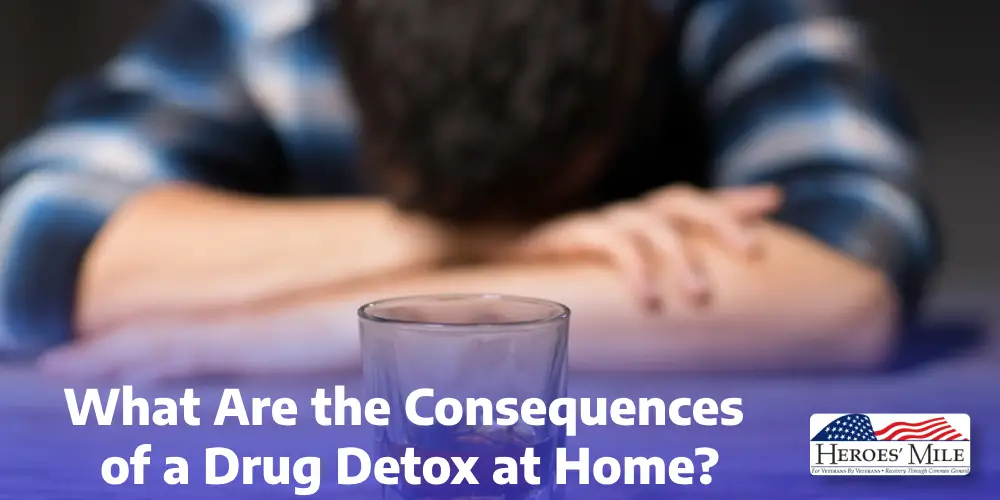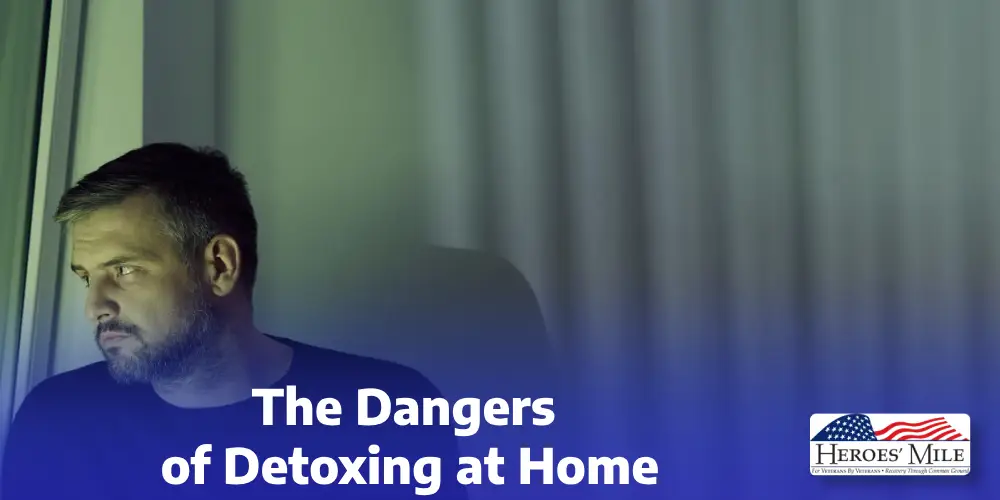

What Are the Consequences of a Drug Detox at Home?
Recognizing one’s battle with drug abuse is often the first step toward recovery for many people. Finding a therapy program that can help them regain their general health, happiness, and well-being is the next step.
There are several alternatives and therapeutic approaches for recovery if you or someone you love is battling addiction. However, the process of cleansing the body of all traces of the addictive substance, whether it’s prescription drugs, alcohol, heroin, or methamphetamine, will begin the moment you decide not to seek out that next drink or dose. It’s hard to resist.


The Dangers of Detoxing at Home
When a substance is eliminated from the body, the body begins to change and adjust quickly. After only a brief effort at home, a dose that was only a few days earlier regarded “normal” (capable of producing a high) might induce overdose.
The urge to stop all of the cravings and torment with a dosage of drugs or alcohol is unbelievably strong when someone independently detoxes at home. Addiction is a sickness that has a lot of power and control.
People’s willpower is frequently insufficient to get them through detox without relapsing. Over 85 percent of people effectively detox in a recovery and transition center, but only around 14 percent of patients effectively detox at home.
Psychological withdrawal symptoms can be just as bad as physical withdrawal symptoms throughout detox. Anger, impatience, paranoia, melancholy, anxiety, and restlessness are all typical symptoms.
If someone has an undiagnosed mental health issue, it might deteriorate or become serious during detox. Detoxing at home raises the danger of a mental health emergency.
Not only is there a higher chance of relapse during at-home detox, but so are the hazards of long-term recovery.
When a patient is guided through the detox process by therapists, medical specialists, and a supportive staff team, the odds of achieving and keeping sobriety are considerably boosted.
During detoxification, patients are at their most vulnerable. They’ve finally accepted that sobriety is possible for them, conquered their withdrawal concerns, and taken the crucial and courageous first step. Why jeopardize all of it with an at-home drug detox?
Detox is needlessly complicated without close supervision and treatment from a specialist. Pain and nausea should be monitored by healthcare staff, and drugs can be used to alleviate them if necessary.
Detox can be challenging if there are underlying medical concerns. Patients frequently are unaware that they have medical problems since they developed when they were addicted and went undetected.
Furthermore, persistent medical disorders that are usually well-managed might cause difficulties during detox, necessitating the prompt presence of medical personnel.
Karen Hardy will describe how she decided to live life knowing her son might die from his heroin addiction. When loved ones of those with addictions place themselves first, seeking their own healing journey, they increase the odds of recovery for everyone. She embarked on her healing journey by documenting a year in their life by writing about their experiences in parallel. By doing so, she was able to keep herself present in her life while working to understand her son’s struggle. Karen Hardy is a mental health and addiction counselor and co-owner of a Wellness Center in Belgrade, Maine. Born in New Haven, Connecticut, she worked as a correctional counselor in the Connecticut state prison system for over 20 years. Read more…
By the time Elvis Rosado was 25, he was addicted to opioids and serving time in jail for selling drugs to support his habit. “I was like, ‘I have to kick this, I have to break this,’ ” he says. For Rosado, who lives in Philadelphia, drugs had become a way to disassociate from “the reality that was life.” He’d wake up physically needing the drugs to function. Read more